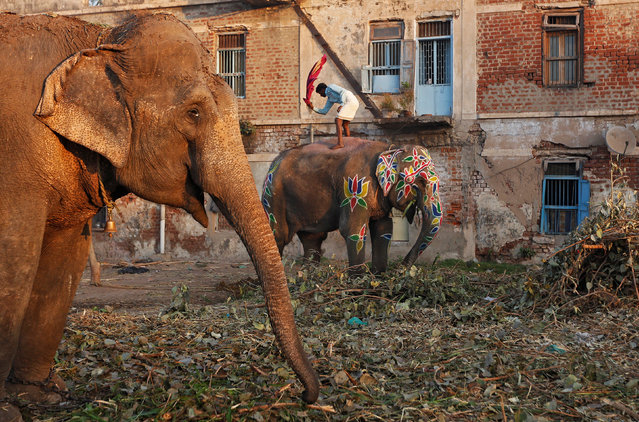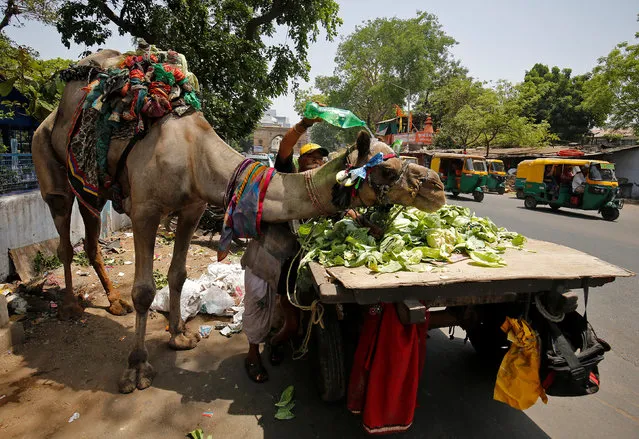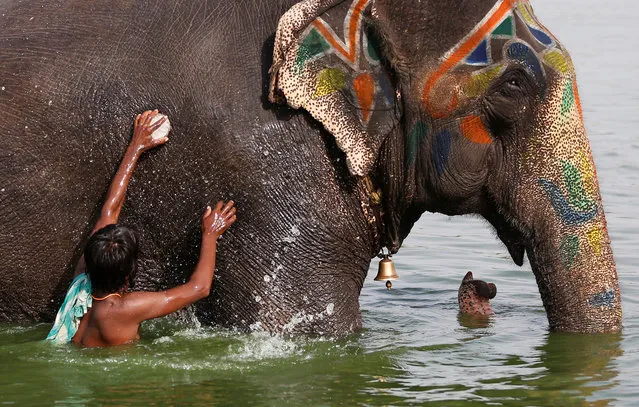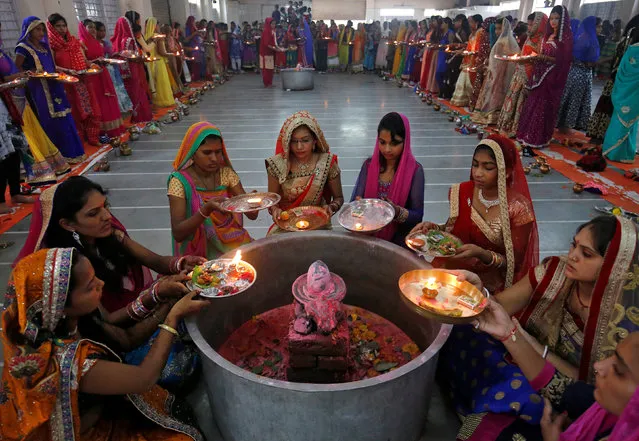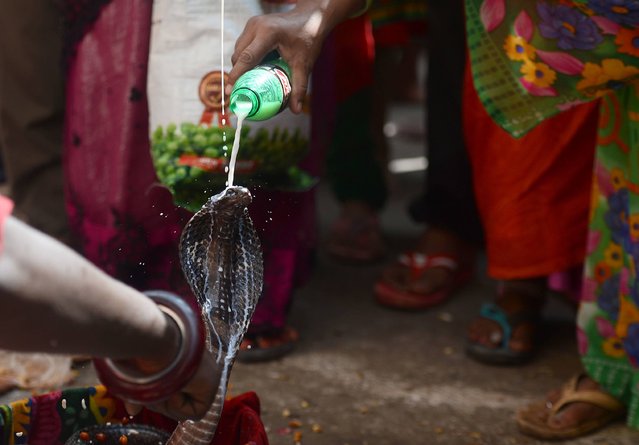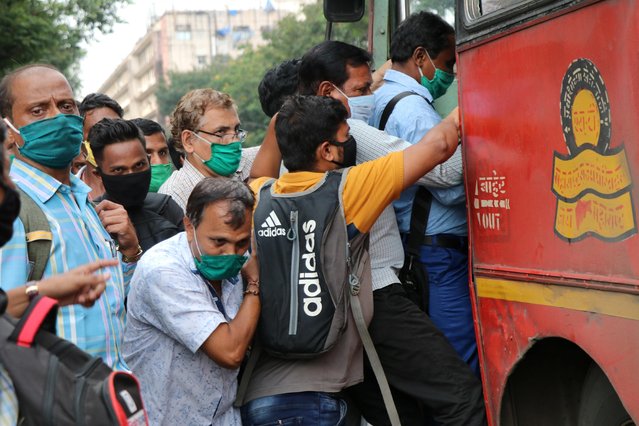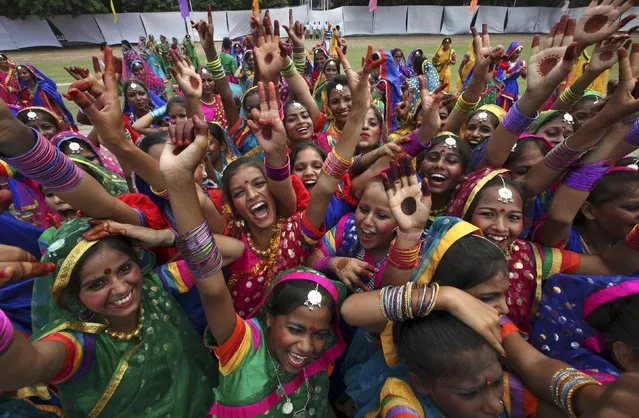
School children celebrate after being rewarded for their dance performance during India's Independence Day celebrations in Chandigarh, India, August 15, 2015. Indian Prime Minister Narendra Modi's independence day speech focused on measures his “Team India” had rolled out to include millions of poor Indians in the banking and insurance systems, policies for workers and farmers and successes in the fights against inflation and corruption. (Photo by Ajay Verma/Reuters)
16 Aug 2015 13:02:00,post received
0 comments

